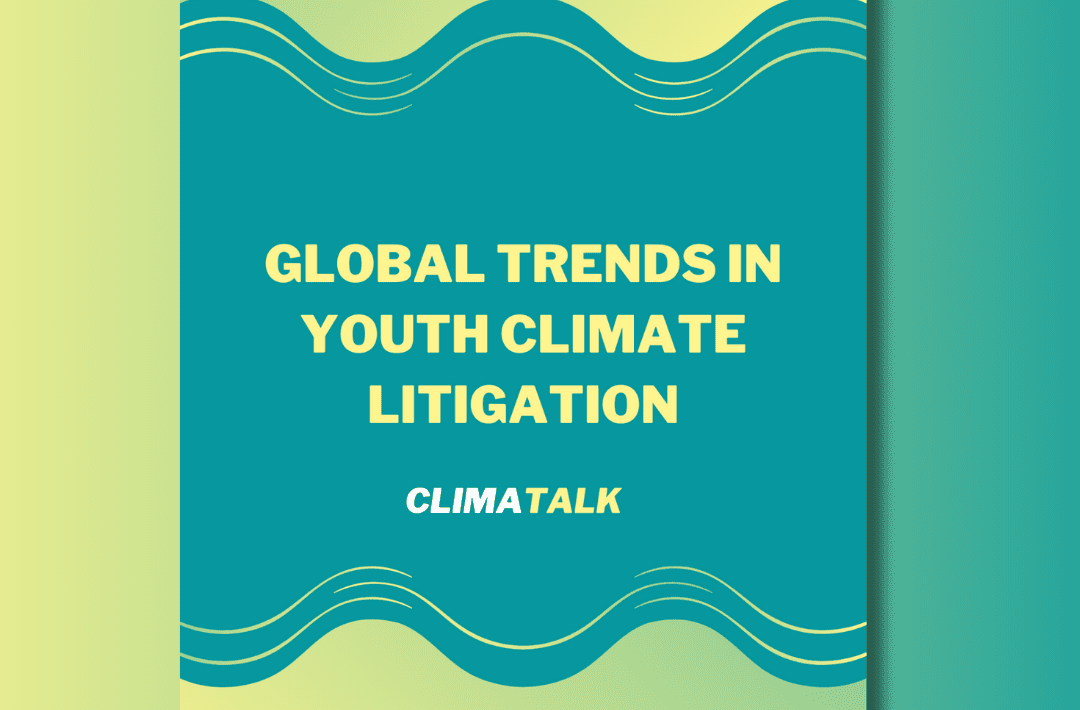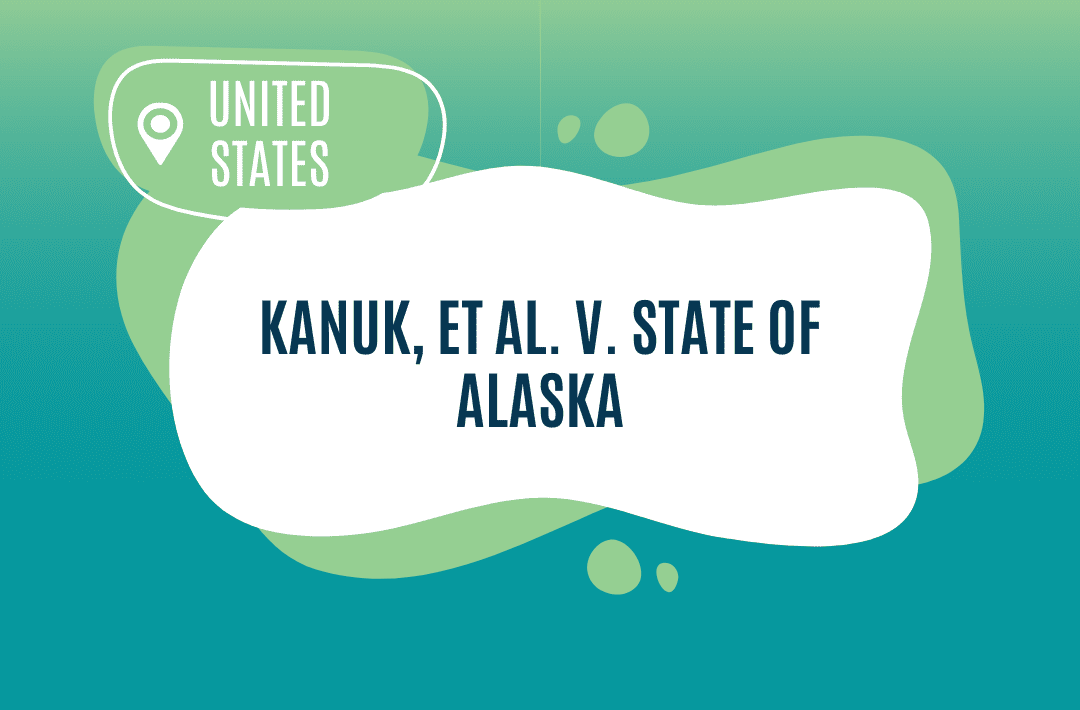
Do-Hyun Kim et al. v. South Korea
by Anna Bortolussi
The constitutional complaint filed by 19 youths alleges human rights violations resulting from the South Korean government’s failure to establish adequate reduction targets in accordance with international commitments that mitigate the effects of climate change. The applicants further complain that by changing GHG reduction targets, the President acted unconstitutionally and exceeded his powers.
| Country: | South Korea |
| Defendants: | State |
| Law Applied: | Domestic Environmental Law Constitutional Law International Environmental Law |
| Key words: | Human Rights Mitigation Loss and Damage Climate Justice |
Case Information:
Court(s): Constitutional Court
Dissenting Judgement: Pending
Filing Date: 13 March 2020
Last Update: 01 September 2022
Status: Pending
ISSUES
On the 13th of March 2020 the Applicants filed a complaint to the Constitutional Court, asking them to decide whether the National Assembly of the Republic of Korea and the President of the Republic of Korea (hereafter ‘The Respondents’) can be held accountable for failing to take sufficient measures to limit their GHG emissions.[1] The Applicants claim that legislation and measures that have been enacted to limit global warming are unconstitutional in so far as they create a risk for their lives and allow the President to exercise a legislative power that belongs to the National Assembly of the Republic of Korea.[2]
MATERIAL FACTS/BACKGROUND
In 2010 the Korean Government enacted the Framework Act on Low Carbon, Green Growth (hereafter ‘Low Carbon Act’).[3] Under Article 25 of the Low Carbon Act the ‘2020 GHG Reduction Target’ was created, which strived for a 30% reduction in GHG emissions compared to the amounts if no reduction was implemented, otherwise known as the ‘Business As Usual’ approach. This emission target was 543 million tons.[4]
In May 2016, the President of Korea amended Art. 25(1) of the Low Carbon Decree and abolished the 2020 GHG Reduction Target, setting a new target for 2030, which included a reduction of 536 million tons. In doing so, he relied on Art. 42(1)(1) of the Low Carbon Act, which grants the Government (President) of Korea ubiquitous authority to set the GHG Reduction Target.[5]
The reduction target set by the President is less than the minimum reduction goal agreed upon in the Paris Agreement 2015, which strives to maintain an increase in the global temperatures of well below 2°C and possibly to 1.5°C.[6] A delay in reducing GHG emissions raises the risk of rising global temperatures and creates dangerous consequences for the climate.[7] In fact, according to official documents from the Korean government, climate change is especially dangerous for South Korea, as it has suffered more consequences of global warming than many other nations.[8] These consequences include rising temperatures, increasing precipitation fluctuations, rising sea level, and an increase in extreme weather phenomena.[9]
The Applicants are 19 members of the group ‘Youth4ClimateAction’ and belong to the younger generation, who may have to bear higher consequences of delayed GHG emission reduction.[10] The Applicants have submitted this complaint to the Constitutional Court, alleging that the legislation in the Low Carbon Act and the subsequent changes in GHG Reduction Target violate various constitutional rights, specifically:
- Article 10, the right to human dignity
- Article 11, the right to equal protection
- Article 34, the right to live a humanly life
- Article 35, the right to a healthy environment
- Article 75, the nondelegation doctrine.[11]
The Respondents’ arguments have not yet been made available and the case is still pending before the court.
THE ARGUMENTS OF THE PARTIES
The Applicants’ Arguments:
Procedural Unconstitutionality
The Applicants claim that Article 42(1)1 of the Low Carbon Act violates Article 75 of the Korean constitution, which establishes the ‘principle of nondelegation,’ also referred to as the ‘prohibition of blanket delegation’.[12] They claim that the provision is procedurally unconstitutional on the basis of the following:
- Article 42(1)1 grants the president with an ‘extreme and unlimited discretion’ to modify, change or abolish the GHG Reduction Target. This amounts to a blanket delegation, contrary to Art. 75 of the constitution, as it does not provide any scope, criteria or standard as to what the substantial contents of the target should be.[13]
- Secondly, the Applicants argue that the provisions in the Low Carbon Act, specifically Articles 25(1) and 42(1)1 are unconstitutional in so far as they do not provide any protection with regards to the reduction in GHG emissions.[14] They are in violation of Art. 35(2) of the Korean Constitution as they allow for a reduction in GHG targets to be set via Presidential Decree, therefore, violating the constitutional requirement that the protection of environmental rights must be enacted through an Act.[15]
Substantial Unconstitutionality
The Applicants also argue that the legislation is substantially unconstitutional as it infringes the right to a healthy environment and the right to life by failing to take GHG reduction efforts that are sufficient to prevent a higher rise in global temperatures.[16] To do so, they relied on the ‘prohibition of underprotection principle,’ whereby the Constitutional Court has the power to review whether ‘the state has taken at least adequate and effective minimum protective measures to protect the rights of the citizens.’[17]
- The Applicants argue that Art. 42(1)1 of the Low Carbon Act is defective in the sense that it is not meeting the obligation to exercise a minimum of appropriate and efficient protection of the citizens’ right to a healthy environment.[18] They bring forward two reasons for how the Respondents have breached these rights:
- The National Assembly of South Korea has failed to establish minimum protective measures by granting the President a blanket delegation under Art. 42(1)1, no guarantees or guidelines relating to the GHG Reduction Target, and no supplementary measures or amendments to the legislation following the ratification of the Paris Agreement in 2016.[19]
- The President of South Korea is not protecting the citizens’ environmental rights: the abolition of the 2020 Reduction Target (543 million tons) and the creation of the new 2030 Target (536 million tons) demonstrate an unwillingness to take the appropriate measures needed to reduce GHG emissions and lower the impacts of global warming.[20] The Applicants emphasise how this is especially unacceptable given that the temperature increase in Korea is significantly higher compared to the rest of the world.[21]
- Lastly, the Applicants argue that the abolition of the 2020 Reduction Target is also in violation of Article 11 of the Constitution, which prohibits discrimination on the basis of age. They argue that the younger generations will suffer disproportionately if older generations do not take more efforts to reduce their GHG emissions, as this will result in young people having to undertake harsher adaptation measures and having to deal with more extreme consequences of climate change.[22]
The Respondent’s Arguments:
The arguments of the Respondents in response to the application have not been published yet.
THE OUTCOME
The case is still pending before the court.
Please find the official translation of the complaint here.
Last edited on 04 September 2022; with thanks to the case editor, Paola Lindo.
References:
[1] Do-Hyun Kim et al. v. South Korea [2020] Constitutional Court of Korea, available here [accessed 25 April 2022][2] Ibid., p. 22.
[3] Framework Act on Low Carbon, Green Growth 2010, available in Korean or English.
[4] Ibid (footnote 1), pp. 4-5
[5] Ibid., p. 1.
[6] Ibid., p. 2.
[7] Ibid., p. 10.
[8] Ibid., p. 17.
[9] Ibid., p. 18.
[10] Ibid., p. 3.
[11] Ibid., p. 14.
[12] Ibid, p. 1 and see Constitution of the Republic of South Korea 1987, accessed at: https://korea.assembly.go.kr:447/res/low_01_read.jsp
[13] Ibid., p. 14. and see footnote 3 for the Act.
[14] Ibid., p. 15.
[15] Ibid., p. 16.
[16] Ibid., pp. 18-19.
[17] Ibid., p. 21.
[18] Ibid., p. 22.
[19] Ibid., p. 23.
[20] Ibid., pp. 23-26.
[21] Ibid., p. 28.
[22] Ibid., pp. 26-27



